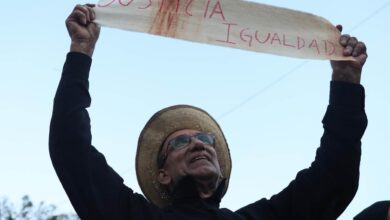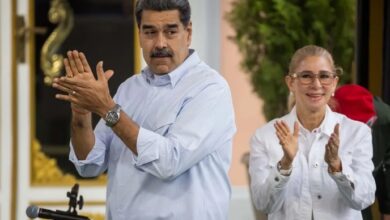Argentina: “The only way to move our country forward is by working”, Minister of Finance
On June 25, Argentine workers carried out a national strike in opposition to the economic policy exposed by President Mauricio Macri

With Buenos Aires paralyzed almost in its entirety, on June 25, one of the most important strikes took place since the president of Argentina, Mauricio Macri, was positioned in December 2015. The strike that lasted a total of 24 hours was due to the new economic policy proposed by Macri, which was opposed by the General Confederation of Labor (CGT, by its acronym in Spanish), of Peronist ideology.
Leer en español: Argentina: "La única manera de sacar adelante nuestro país es trabajando", ministro de Hacienda
However, the strike of workers not only had an impact on the Argentine capital but in a large part of the country, due to the limitations suffered by the transport during the day. According to the EFE news agency, "the strike in Argentina forced the cancellation of 600 flights and affected 71,000 passengers."
The #ParoNacional is total in the airports of the country. pic.twitter.com/u4GbnEbMkz
– CTA (@CTAok) June 25, 2018
Total rejection of the economic policy
In addition to the CGT, sectors of the extreme left such as the Partido Obrero and the Central de Trabajadores de la Argentina (CTA) also joined to the strike. According to La Vanguardia, they were the ones who really organized the mobilizations of the workers, because the CGT had only called for a strike of the population, but not massive demonstrations of it.
Among the disagreements that originated the historic day is the approval of a loan from the International Monetary Fund (IMF) to the Argentine Government, as well as the inflation that the country is living and the wage agreements for workers.
No to the deal with the IMF
In the month of May, the news regarding the deal that Mauricio Macri was making, headed by the Executive Power, with the IMF, became known. This is a deal for which this organization can finance a total of 50 million dollars to Argentina, according to El País, which was already approved last week.
The IMF loan is born, according to Alejandro Werner, director of the Department of the Western Hemisphere and cited by Infobae, for the need to have "a particular focus on protecting the most vulnerable and strengthening the Argentine economy in light of the recent turbulence in financial markets."
However, the main labor movements in the country have not seen with good eyes this agreement between the Argentine Government and the IMF. As the sociologist and political analyst Martín Ogando explains in conversation with RT, that with the loan there will be "a strong adjustment on workers of the State, reduction of expenses in education and public works and commitments of new labor and social security reforms".
You can also read: Nicaragua: Does a strike change the national panorama?
Raise in the inflation
In addition, to this economic adjustment are added the "failed negotiations" between the National Government and the trade unionists in March. According to El Comercio, these only opted for a 15% wage increase that could represent inflation in Argentina for the current fiscal year.
However, for the month of May already had a total of 11.2%, so that total inflation in 2018 "could approach 30% before the end of the year," said Daniel Zovatto, director for Latin America and the Caribbean of International IDEA, in an interview with El Tiempo.
Reactions
"Clearly they do not contribute to anything, they do not add up, I do not see that there has been a government in decades with such concern for employment and the worker and for generating new opportunities," said the country's president, Mauricio Macri, quoted by El Clarín. In addition, from the Casa Rosada, he warned the unionists through a video in his Instagram account that "here we work."
For his part, Finance Minister Nicolás Dujovne said that "the strike will cost almost 29 billion pesos (about 1,000 million dollars). The only way to move our country forward is by working", according to El País.
Latin American Post | Christopher Ramírez Hernández
Translated from "Argentina: "La única manera de sacar adelante nuestro país es trabajando", ministro de Hacienda"





